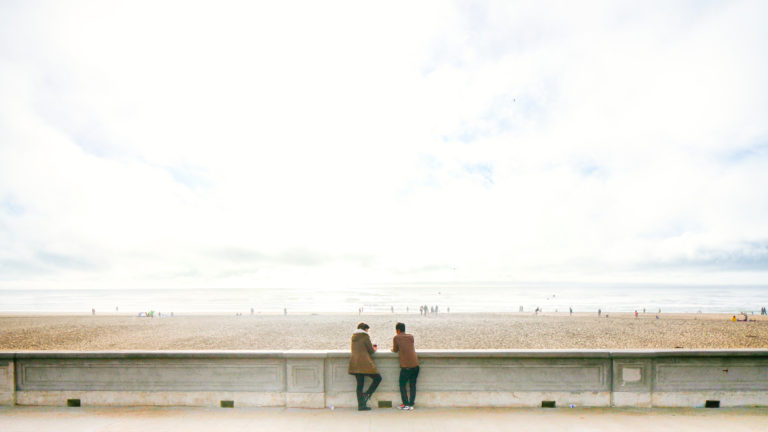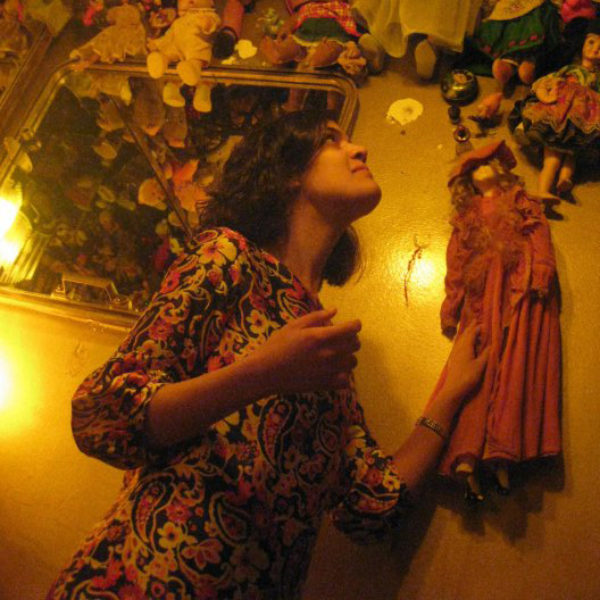
Image by Basheer Tome/Flickr, Some Rights Reserved.
Conversations at the Margins
I am the foster child of unlikely conversations.
In 2008, and during my college years, I became part of a group of young people from across the globe — brought together virtually and physically to walk the bumpy road of cross-cultural/interfaith dialogue. It enriched my life in so many ways, large and small. As I embark on a new journey with On Being, this is what I remember from being in that group.
I was the Jordanian Palestinian, the lukewarm Muslim. I grew up with stories of displacement and loss, of a homeland I could not belong to, with an uncompromising narrative of who the enemy is. These, among others, were some of the layers of identity that I carried with me into that space of conversations beyond difference.
We were a group of young activists, social entrepreneurs, students, researchers, journalists, young politicians, and others who were committed to repairing of the world, each in our own way. We were all against violence and panic-ridden media. We all wanted to be in dialogue with one another. That was the remedy. There was so much harm being done in the world, because people needed to be reminded of their places of commonality. That was our assumption.
We always had a set agenda, an attempt to make the best out of a short time, to agree on an action plan. There were attempts to create a spirit of civil exchange and trust, but there were always rather interesting group dynamics — you had the more vocal group that dominated the conversation, the group that felt unheard and threatened, and a few participants who were utterly indifferent and uninspired by a process trying to force itself upon them. There was also the group that felt that descriptions such as “the West” and “the predominantly Muslim world” were too narrow, that it had been decided for us, before we even knew each other, why and how we were different.
I remember being aware that there was something very detached about the way the questions were asked. We brought our “expert” selves into the conversation. We diagnosed why our world was failing to live more comfortably, and consciously, with difference. People expressed their positions, talked at each other, but rarely listened to one another. We all knew that it only takes one sentence, one opinion to polarize the group, the so-called like-minded moderates, and leave people feeling overwhelmed and unsafe.
It did not really matter how many bridge-building activities we had been doing together. When a heated and deeply personal topic was brought up, we knew there was going to be trouble, and nobody knew how to have those conversations. And so it was left outside of our agendas, or reduced to a heated exchange of opinions and statements that highlighted the commonality or the controversy, but never gave space for the complexity.
Whether it was a conversation about finding answers for religious extremism and intolerance, defying dominant media narratives, or even unpacking our shared humanity, nobody wanted to talk about how we bring together our painfully different narratives and experiences, or how challenging it actually is to overcome the ghosts of history lurking in the shadows of our many attempts to be in dialogue. We all focused on what we had to deliver, on the discussions and conversations we needed to reach consensus, and nobody had time to actually listen, to sit with the messiness, the complexity of it all.

Great conversations still happened, mostly outside our formal spaces, during coffee breaks, or long walks at 3 a.m. as we explored a new city, or tried new kinds of food. There were also small, magical moments when we engaged in a creative act — dancing, doing role plays, putting on a performance of some sort — that provided a rawness and an intimacy that I personally craved, and could not find in our “in-session” times together. There was a lot of knowledge and wisdom gained during those sessions, but on the periphery, unlikely conversations happened, giving room for new ways of knowing and encountering the world around me. That was the difference!
Despite our transformative time together, we knew that many of us were left feeling unheard, that the space itself gave room for lively exchange of ideas and opinions, but not for listening, for being surprised by one another. We really could have ventured into re-imagining our wounded relationships, which is what it would actually take to create hospitable spaces where we could relate to each other with more care and curiosity. Our creativity, the richness and messiness of our experiences, were smothered with an official binary language that failed us, that did not have the kind of imagination we needed for complicated entangled relationships and connections we were trying to make.
As I set foot on this new adventure with the Civil Conversations Project, I carry my experiences in the art of conversation with me.
The Civil Conversations Project is an experiment in the kind of moral imagination we all need, as people and communities, to make room for spacious and generous conversations, conversations where we can share our half-thoughts and full truths, while staying grounded in our differences and continuing to hold profound disagreements. It comes out of the wisdom of individuals that we have encountered with On Being, and who have dared to venture into a new kind of relationship with difference — one that is informed by curiosity and care.
I know now that we will not arrive at a unified universal truth. That’s not the point. The question is, how do we deal with the complexity and uncertainty of our time? How do we sit with it without passing moral judgments and letting fear overtake our sense of being?
I also know that people are hungry for conversations, for forming deeper and more profound relationships, more meaningful communities, for moving beyond the polarities. Such hunger expresses itself at the margins, away from what’s happening in formal spaces. This is what I want to talk about.
We want this to be a place where adventurous civility, in all shapes and forms, can be shared and celebrated. A place to grapple with the how of it all, not by offering a formula, but by sharing experiences in the art of civil conversations as we encounter them. A place to ask questions that plant us back into ourselves, into those places within us where generous listening, humility, hospitality, and patience express themselves; questions that are grounded in a willingness to be surprised, and in a language that rekindles our sense of wonder. We want this to be a place that acknowledges that it is difficult and painful to encounter difference with vulnerability, but it is also worth the commitment. It starts with small invitations, and here is mine:
When was the last time you had a good conversation with someone you disagree with? What made it so memorable?
